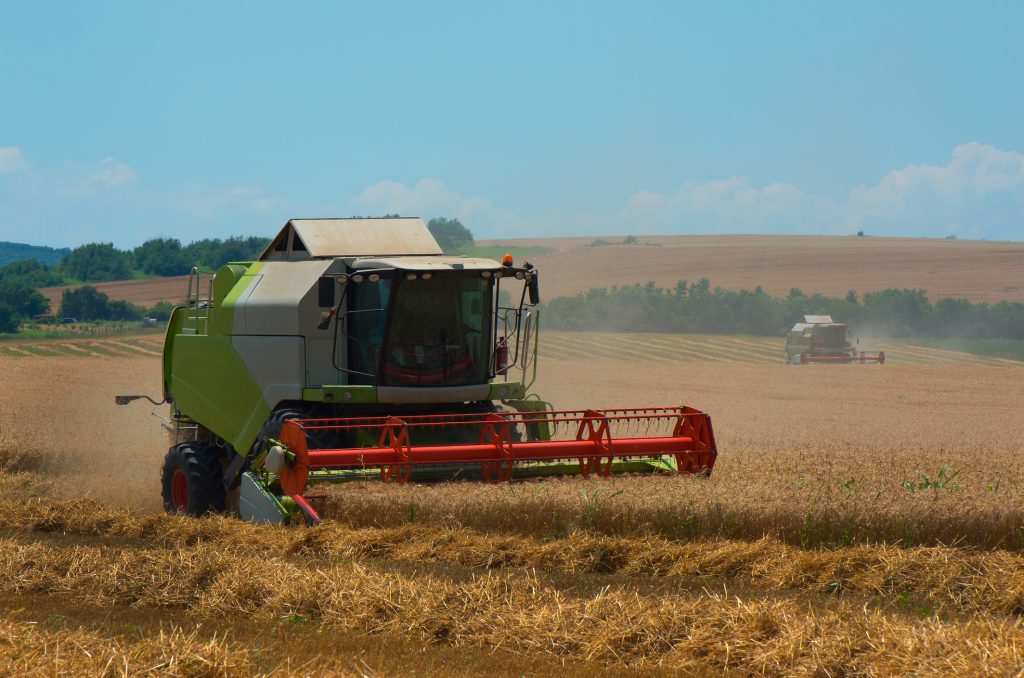Denmark assumed the rotating presidency of the Council of the European Union on 1 July, at a challenging moment for climate policy. The Danes’ reputation in Brussels as pragmatic, efficient and cool-headed should serve them well against a backdrop of global instability, which has accentuated sharp disagreements between EU capitals.
Denmark’s bold climate credentials will be tested now that far-right politicians will lead the European Parliament’s work on the bloc’s new climate target. This move could delay an agreement on the goal to cut greenhouse gas emissions by 90% by 2040.
The presidency will also coincide with the early discussions on the EU’s next medium-term budget, running from 2028 to 2034, with significant implications for farm spending and the future Common Agricultural Policy.
Simplification, competitiveness
The Danish EU Presidency’s programme for July – December 2025 outlines a comprehensive vision for the agriculture and food industry, emphasising simplification, sustainability, innovation, and competitiveness.
A central priority is to make daily life easier for farmers, fishers, and food producers by simplifying and improving EU agricultural, food, and fisheries policies. The Presidency plans to conclude negotiations on the agricultural simplification package, reducing administrative burdens and ensuring clearer, more effective regulation for stakeholders.
This comes at a time when the EU is considering a dramatic shift in its green regulations, with the European Commission’s bill to reduce green reporting obligations for companies still under negotiation at the European Council.
Although Denmark supports the idea of simplification, it remains committed to the Green Deal’s goals, asserting that sustainability and competitiveness can coexist. They have been notably successful in engaging their farmers in green initiatives, exemplified by the implementation of the EU’s first agriculture carbon tax.
The Common Agricultural Policy
Another key focus of the Presidency is shaping a “green, simple, and market-oriented Common Agricultural Policy (CAP) that supports climate and environmental measures while bolstering competitiveness and innovation”.
The presidency preparations for post-2027 CAP reforms will focus on rural development, organic farming, generational renewal, animal welfare, and more coherence with climate and environmental legislation. But this will be no easy feat.
The Common Agricultural Policy is one of the EU’s most expensive and politically sensitive programmes. With a budget of almost €400 billion, the CAP currently accounts for nearly a third of the EU’s entire seven-year budget. Created in 1962, it is the bloc’s oldest policy, both fiercely defended and criticised.
The European Commission is expected to present its post-2027 CAP proposal on 16 July, alongside the next long-term budget. For a few months, it had even considered restructuring the Common Agricultural Policy, but the idea was met with such uproar and resistance that it was effectively shelved.
Although the CAP’s overall structure has been saved, reports suggest that the Commission is still expected to propose significant cuts to overall CAP funding. Early estimates indicate a reduction of between 15% and 25% compared to current levels.
Nevertheless, Danish Minister for Food, Agriculture and Fisheries Jacob Jensen is one of the few agriculture ministers who is not pressing the EU executive on the size or the structure of the future budget.
In an interview with Euractiv, he said: “I’m not so concerned about the amount; I’m more focused on the content.” Instead, Jensen said he wants to promote specific “political goals” and see the CAP further “simplified” in its upcoming reform. “We need to do more, and we need to do it fast,” he added.
Consumer-focused innovation
The Presidency will also prioritise continued product innovation and development to meet diverse consumer needs and ensure a level playing field within the EU.
It aims to advance negotiations on new genomic techniques for plant breeding, as well as for forest and plant reproductive material, to support resilient and sustainable food production.
Bioeconomy and bio-based solutions also contribute significantly to sustainable agricultural and food production. The Presidency will focus on the upcoming EU Biotech Act and address the need for flexibility, reduced administrative burdens, and regulatory simplification to foster these solutions.
It also intends to strengthen the position of farmers within the food supply chain, which it lists as a priority, with efforts to conclude negotiations on unfair trading practices and amend the Common Market Organisation for agricultural products.
Denmark plans to tackle animal, human, and plant health through the modernisation of European animal welfare legislation, particularly regarding animal transport and the welfare and traceability of companion animals. Issues that are likely to stir intense debate.
The presidency’s programme recognises that developing a common EU action plan for plant-based foods and a protein strategy is vital for sustainable food systems, livestock feed, and diversification of supply sources.
Two key events in the autumn will back this effort: the presidency will host a conference on plant-based foods in September, followed by a “Plant Food Inspiration Summit” in October.
Jensen confirmed to Euractiv that he would like to see Brussels mirror Copenhagen’s own strategy for plant-based foods – an EU-first that encouraged citizens to cut back on meat in favour of legumes and while he intends to steer clear of the debates over the labelling of plant-based foods, the Danish presidency will not shy away from debates over diets.
[Edited By Brian Maguire | Euractiv’s Advocacy Lab ]
